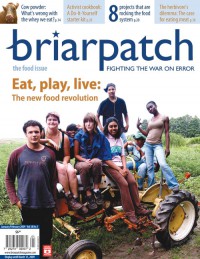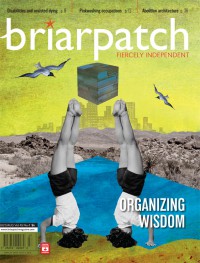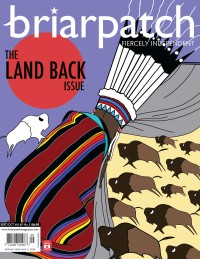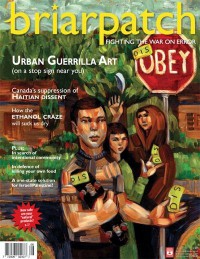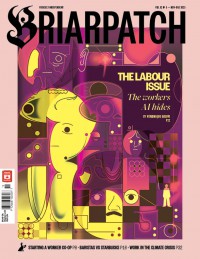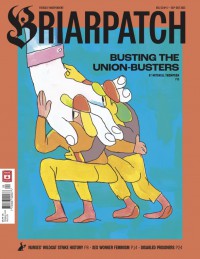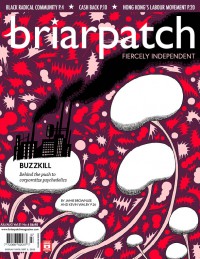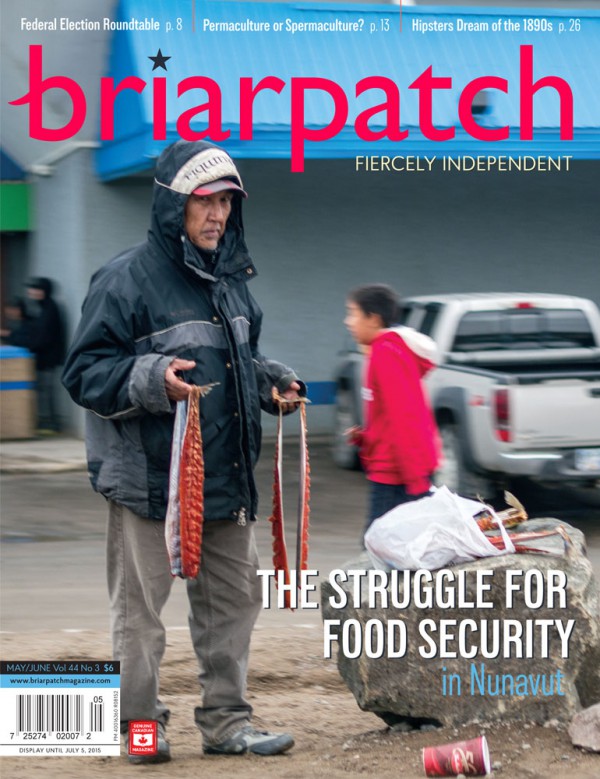
Artistic interventions in John A. Macdonald’s bicentennial celebrations. An activist roundtable on the federal election. The role of patriarchy in permaculture. The meaning of elections for Six Nations, the largest reserve in Canada. The new wave of food co-ops. Heritage hipsters and gentrification. An interview with members of Feeding My Family about food security in Nunavut. Regulatory headaches for small farmers. These features and more!
-
 Magazine
MagazineBeyond Holding Your Nose
What a politician is willing to do is never as important as what we can do together when we organize.
-
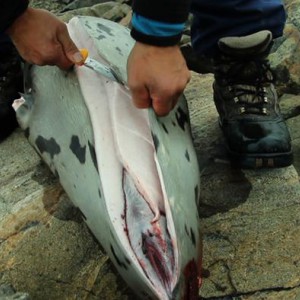
-
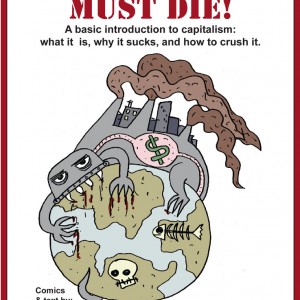 Magazine
MagazineCapitalism Sucks and Must Be Crushed
Comic artist Stephanie McMillan uses clear examples to explain how the capitalist system is fast murdering the planet.
-
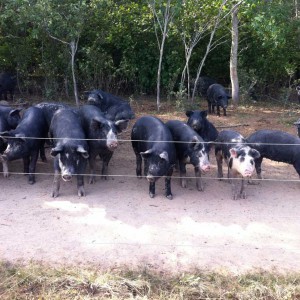 Magazine
MagazineRegulatory Snarls for Small-scale Farmers
Consumers and foodies are clamouring for ethical local foods, but some farmers are in a pickle just trying to get their goods to market.
-
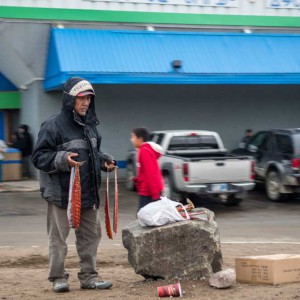 Magazine
MagazineStruggling for Food Security in Nunavut
Northerners are organizing to address the crisis of food insecurity in their communities.
-
 Magazine
MagazineThe Meaning of Elections for Six Nations
The conflict between the hereditary leadership and the elected band council on the largest reserve in Canada provides an education in colonialism.
-
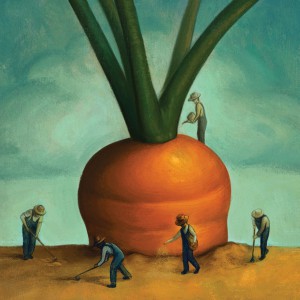 Magazine
MagazineThe New Wave of Food Co-ops
An intergenerational movement of food co-ops is emerging across Canada to create the roots of a co-operative food system.
-

-
 Magazine
MagazineTalkin’ Back to Johnny Mac
Bicentennial celebrations for Canada’s first prime minister are being met with artistic interventions.
-
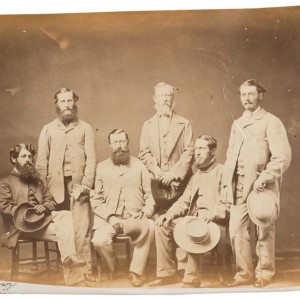
-
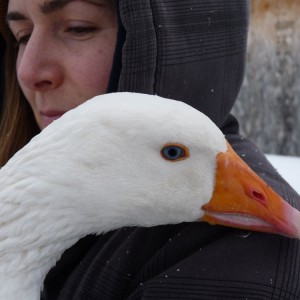 Magazine
MagazinePermaculture or Spermaculture?
Women continue to be under-represented in permaculture’s dominant forms of knowledge dissemination.

